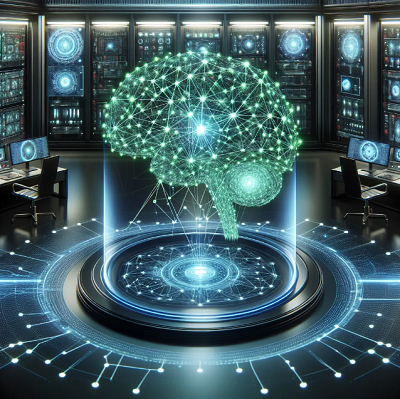In an era where the digital landscape is perpetually evolving, artificial intelligence (AI) has emerged as a pivotal force in reshaping marketing strategies. The integration of AI in marketing not only streamlines operations but also offers unprecedented opportunities for customer engagement and attraction. This blog delves into the transformative role of AI in crafting targeted marketing campaigns, offering insights into how businesses can leverage this technology to captivate their audience like never before.
Understanding the AI Revolution in Marketing
The journey of AI from a fledgling technology to a cornerstone of modern marketing is nothing short of remarkable. Its evolution has been driven by the relentless pursuit of more personalized, efficient, and impactful marketing strategies. AI technologies, such as machine learning and natural language processing, are at the forefront of this revolution. They are reshaping how businesses interact with their customers, enabling a level of personalization and insight previously deemed unattainable.
The Mechanics of AI in Targeted Marketing
At the heart of AI’s prowess in marketing lies its ability to sift through and analyze vast amounts of data. By understanding customer behavior and preferences, AI enables businesses to segment their audiences with unprecedented accuracy. This deep insight into customer data allows for the prediction of future buying patterns, ensuring that marketing efforts are not just targeted but also timely and relevant.
Personalization at Scale: The AI Advantage
The true power of AI in marketing is its capability to personalize at scale. Traditional marketing strategies often struggle to maintain personalization as they expand their reach. AI, however, thrives in this environment. It can tailor marketing messages and offers to individual customer profiles, ensuring that each interaction feels personal and genuine. Brands like Amazon and Netflix have set benchmarks in AI-driven personalized marketing, offering recommendations that often feel uncannily accurate and highly relevant to each user.
Overcoming Challenges with AI-driven Marketing
Despite its myriad advantages, the path to integrating AI in marketing is not without its challenges. Data privacy concerns loom large, with customers increasingly wary of how their information is used. Additionally, AI models require continuous training to remain effective, necessitating a significant investment in time and resources. However, these obstacles are not insurmountable. By adopting transparent data practices and committing to the ongoing development of AI models, businesses can navigate these challenges successfully. The key is to strike a balance between leveraging AI’s capabilities and respecting customer privacy.
Future Trends: The Next Frontier in AI and Marketing
Looking ahead, the potential for AI in marketing is boundless. Technologies such as augmented reality (AR) and virtual reality (VR) are set to offer even more immersive and engaging customer experiences. AI’s ability to analyze emotional cues from voice and facial recognition could open new frontiers in personalized marketing. As AI continues to evolve, it will undoubtedly unlock innovative ways for businesses to attract and engage customers.
By embracing AI, businesses can not only enhance their marketing strategies but also forge deeper, more meaningful connections with their customers. The journey of integrating AI into marketing efforts is an ongoing one, with each step forward offering new opportunities for innovation and engagement. As we look to the future, one thing is clear: the role of AI in marketing is not just transformative; it is revolutionary.
In conclusion, the integration of AI in targeted marketing campaigns represents a paradigm shift in how businesses approach customer attraction and retention. By leveraging AI’s capabilities for personalization, predictive analysis, and customer engagement, businesses can navigate the complexities of the modern marketing landscape more effectively. As we continue to witness the evolution of AI technologies, the potential for creating more impactful and meaningful marketing strategies seems limitless. The future of marketing lies in harnessing the power of AI, and the time to embrace this change is now.
